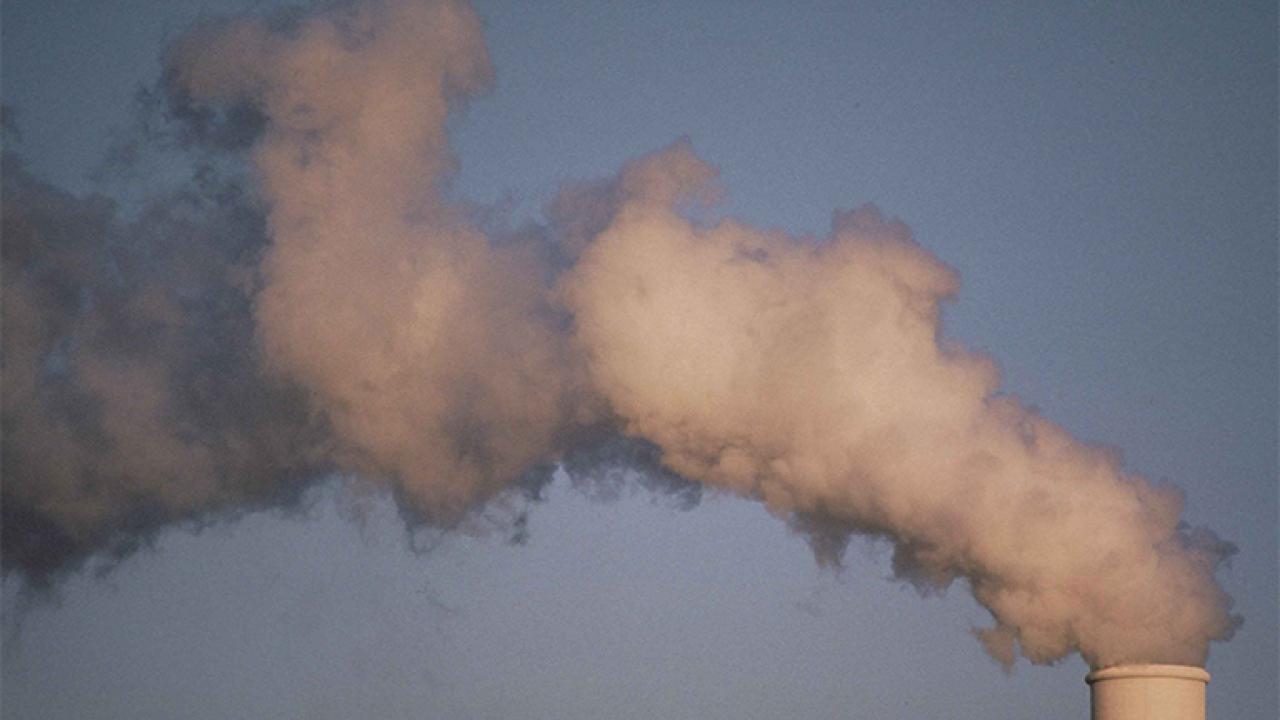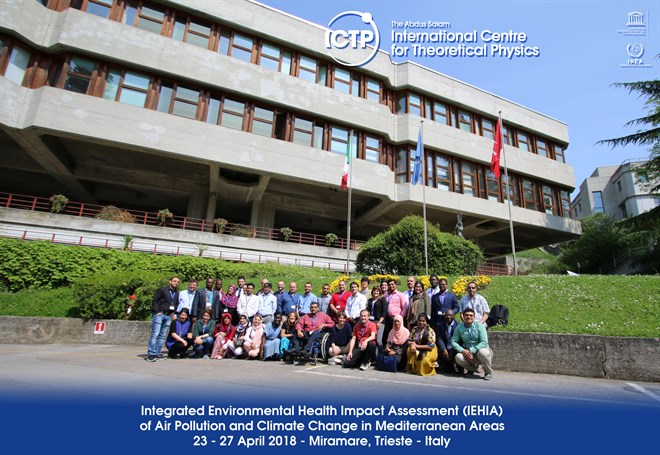
ICTP recently hosted the school "Integrated Environmental Health Impact Assessment (IEHIA) of Air Pollution and Climate Change in Mediterranean Areas”, attracting participants from all over the world and guaranteeing top level teaching by recognized experts in atmospheric chemistry, climate, epidemiology, toxicology and economics. The final goal was to strengthen in-country scientists and stakeholders capacity to face the health challenges posed by environmental stressors, to give students and early-stage researchers a good understanding of the practice of exposure assessment, epidemiology and integrated health impact assessment, and to foster the establishment of strong networks within the Mediterranean region.
In the frame of this school, a public roundtable discussion on how science can bring better air and health to the world was organized on 26 April. Moderated by Dorothee Moisan, a freelance journalist based in Paris and specialized in environmental issues, this outreach event was a good occasion to analyze the state of the art knowledge on air pollution and climate change.
The starting point for the discussion was the acknowledgement that the Mediterranean basin is a hotspot for climate change and air pollution. Its inhabitants are regularly exposed to pollutant loads well above WHO (World Health Organization) air quality recommendation standards, and the need to empower local scientists to develop new solutions is very strong. “Politicians often talk about climate change rather than air pollution, which has now reached worrying levels,” said one of the participants.
Air pollution is a multi-faceted issue. Defining the scope of a scientific investigation into the issue requires knowing which pollutants to check on, what the commonly accepted exposition thresholds are, and how to communicate and support mitigation policies in various national contexts. Roundtable participants had the chance to share their experience, discuss obstacles, ask for advice and co-imagine possible solutions.
One of the top priorities for scientists is to have reliable data to base their studies on. Unfortunately, it turns out that a lack of official data, the difficult access to it and its prohibitive costs are still problems that Iran, Nepal, India, Bulgaria, Kenya, Lebanon and many other countries seem to share. “To find data is difficult, you often need to pay high amounts of money and they might even turn out not to be reliable,” said a female participant from Bulgaria. An African participant agreed: “Access to data is not for all. You need money and time to get these numbers. In some cases you can get them from local institutions, but you cannot publish them.” A young, Italian attendee provoked the discussion by adding, “A possible solution could be to start collecting data yourself. Isn’t it preferable to have few poor data (but aware of uncertainties), than nothing at all?”
Another possible solution that emerged during the debate focused on networking. “There is no communication between institutions, between universities and local governments. We lack a common will for development” said a participant from Nepal.Data should be shared between scientific centers, but there is also a need for politicians and stakeholders to be involved more. “They need to understand they will also benefit from a better air quality. This should become an economic, rather than a scientific, issue to be addressed,” said a Lebanese participant.
The role and the importance of public engagement were also discussed. “Public engagement is key,” said a scientist from Ghana, adding, “In many cases, scientists are not able to communicate. They should go out and bring the information outside, through media. We have recently created a new space on a local radio, for example, called AIR TIME, which has proved very useful to get the message out.” Roundtable participants agreed that it’s crucial that journalists cover the topic more, to put pressure on governments.
The roundtable also addressed the lack of public awareness about the fact that air pollution is deadly. “We don’t need another study to tell us air pollution is bad, to prove it’s dangerous. We already know that. The time for action was yesterday. Now we have the tools to do something. Think about your country 20 years ago,” said a researcher from Italy, “We have better tools, we have better scientists today. But if you don’t ask, nothing will change.”
“The solution might be one of us,” concluded a young scientist from Sudan, where they have recently managed to organize a national conference gathering over 20 local institutions, thus creating new fruitful collaborations. “You just need to start and to strongly believe in what you do: only then you can do it, no matter all the side issues.”
 |
| Group photo featuring all workshop participants, coming from over 20 countries |
--- Anna Lombardi













